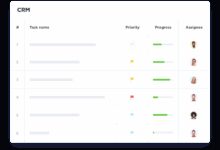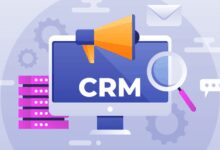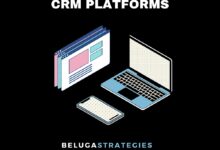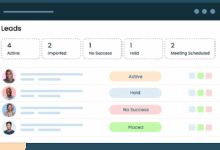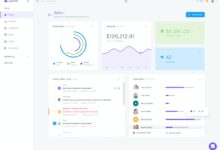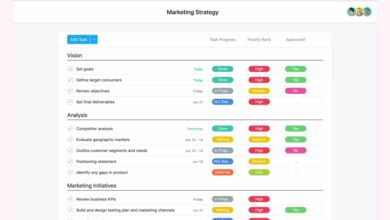Affordable CRM Software for Small Business: 7 Ultimate Picks for 2024
Running a small business doesn’t mean you have to compromise on powerful tools. Discover the most affordable CRM software for small business that delivers big results without breaking the bank.
Why Affordable CRM Software for Small Business Is a Game-Changer

For small businesses, every dollar counts. Investing in affordable CRM software for small business isn’t just about cutting costs—it’s about maximizing efficiency, improving customer relationships, and scaling smarter. A well-chosen CRM can automate repetitive tasks, centralize customer data, and boost sales productivity.
Boosting Sales Without Breaking the Bank
One of the biggest advantages of affordable CRM software for small business is its ability to streamline the sales process. Instead of relying on spreadsheets or memory, sales teams can track leads, manage pipelines, and follow up with prospects systematically.
- Automated lead assignment ensures no opportunity slips through the cracks.
- Visual sales pipelines help identify bottlenecks and improve forecasting.
- Integration with email and calendars saves time and reduces manual data entry.
According to Salesforce’s State of Sales Report, high-performing sales teams are 2.3x more likely to use CRM tools than underperformers.
Enhancing Customer Relationships on a Budget
Customer retention is often more cost-effective than acquisition. Affordable CRM software for small business helps nurture long-term relationships by storing interaction history, purchase behavior, and support tickets in one place.
- Personalized communication becomes easier with detailed customer profiles.
- Automated follow-ups keep clients engaged after a purchase.
- Feedback collection tools help identify areas for improvement.
“A CRM isn’t just a database—it’s a relationship engine.” — HubSpot Blog
Top 7 Affordable CRM Software for Small Business in 2024
Choosing the right CRM can be overwhelming. To simplify your search, we’ve compiled a list of the top 7 affordable CRM software for small business that balance functionality, ease of use, and price.
1. HubSpot CRM
HubSpot CRM stands out as one of the most popular affordable CRM software for small business due to its robust free plan and seamless integration with marketing and sales tools.
- Free forever plan includes contact management, deal tracking, and email integration.
- User-friendly interface ideal for non-technical users.
- Paid tiers offer advanced features like automation, reporting, and live chat.
Its integration with Gmail and Outlook allows users to log emails and schedule meetings directly from their inbox. Learn more at HubSpot’s official CRM page.
2. Zoho CRM
Zoho CRM is a powerful yet budget-friendly solution that scales with your business. It’s especially popular among startups and growing SMBs.
- Free plan supports up to three users with essential CRM features.
- AI-powered assistant (Zia) helps predict deals and automate tasks.
- Highly customizable workflows and sales automation.
Zoho also offers a suite of integrated business apps, making it a one-stop solution. Visit Zoho CRM’s website for pricing and demo options.
3. Freshsales (by Freshworks)
Freshsales is known for its intuitive design and built-in phone and email capabilities, making it a top contender among affordable CRM software for small business.
- Free plan includes up to 10 users, AI-based lead scoring, and visual deal pipeline.
- Click-to-call and email tracking reduce manual effort.
- Real-time insights help sales reps prioritize high-value leads.
It’s particularly effective for inside sales teams. Explore features at Freshsales official site.
4. Insightly
Insightly combines CRM with project management, making it ideal for service-based small businesses that manage client projects.
- Robust project tracking with timelines and milestones.
- Workflow automation reduces repetitive tasks.
- Mobile app allows access on the go.
While its free plan is limited, the paid plans offer excellent value for businesses needing both CRM and project coordination. Check out Insightly’s platform for more details.
5. Agile CRM
Agile CRM is an all-in-one solution that blends sales, marketing, and service features into a single affordable platform.
- Free plan includes contact management, email campaigns, and telephony.
- Marketing automation includes landing pages and web tracking.
- Customer support tools like ticketing and helpdesk are built-in.
It’s a great fit for solopreneurs and micro-businesses. Learn more at Agile CRM’s website.
6. Capsule CRM
Capsule CRM is a minimalist yet powerful option for small businesses that value simplicity and reliability.
- Free plan for up to two users with core CRM functionality.
- Easy integration with Google Workspace and Mailchimp.
- Task and sales pipeline management are straightforward and effective.
It’s perfect for consultants, freelancers, and small retail businesses. Visit Capsule CRM to start a free trial.
7. Bitrix24
Bitrix24 is a feature-rich platform that offers a free plan with impressive capabilities, including CRM, communication tools, and collaboration features.
- Free plan supports up to 12 users with unlimited contacts and deals.
- Includes telephony, video conferencing, and task management.
- On-premise option available for businesses concerned about data control.
While the interface can feel cluttered, its depth of features makes it a strong choice. Explore at Bitrix24’s official site.
Key Features to Look for in Affordable CRM Software for Small Business
Not all affordable CRM software for small business are created equal. To get the most value, focus on platforms that offer essential features tailored to your business needs.
Contact and Lead Management
The foundation of any CRM is its ability to store and organize customer information. Look for tools that allow you to:
- Import contacts from email, spreadsheets, or social media.
- Tag and segment leads based on behavior or demographics.
- Track communication history across channels (email, phone, social).
A well-structured contact database ensures your team never starts from scratch in a conversation.
Sales Pipeline and Deal Tracking
A visual sales pipeline helps small businesses manage opportunities more effectively. Key aspects include:
- Drag-and-drop deal stages to reflect your sales process.
- Forecasting tools to predict revenue based on active deals.
- Automated reminders for follow-ups and task completion.
According to Nucleus Research, companies using CRM see an average of $8.71 return for every dollar spent.
Integration Capabilities
Your CRM should work seamlessly with tools you already use. Prioritize platforms that integrate with:
- Email clients (Gmail, Outlook)
- Accounting software (QuickBooks, Xero)
- Marketing platforms (Mailchimp, Facebook Ads)
API access and Zapier compatibility can extend functionality without custom development.
Free vs. Paid Affordable CRM Software for Small Business
Many small businesses start with free CRM solutions, but it’s important to understand the trade-offs between free and paid versions of affordable CRM software for small business.
Advantages of Free CRM Plans
Free CRM plans are ideal for startups and solopreneurs testing the waters. Benefits include:
- No financial risk when evaluating a platform.
- Access to core features like contact management and deal tracking.
- Opportunity to train teams before scaling up.
However, free plans often come with limitations in user count, storage, and support.
When to Upgrade to a Paid Plan
As your business grows, you may need advanced features that free plans don’t offer. Consider upgrading when you need:
- More than 3–5 users on the system.
- Advanced reporting and analytics.
- Customization options for workflows and fields.
- Dedicated customer support and uptime guarantees.
Paid plans typically start at $10–$25 per user per month, which is still affordable for most small businesses.
How to Choose the Best Affordable CRM Software for Small Business
Selecting the right affordable CRM software for small business requires careful evaluation. Follow these steps to make an informed decision.
Assess Your Business Needs
Start by identifying your primary goals. Are you looking to:
- Improve sales conversion rates?
- Enhance customer service response times?
- Automate marketing campaigns?
Your objectives will determine which features are non-negotiable.
Involve Your Team in the Decision
User adoption is critical to CRM success. Involve sales, marketing, and support teams in the selection process by:
- Conducting live demos of shortlisted tools.
- Gathering feedback on ease of use and interface.
- Testing mobile accessibility and offline functionality.
A tool that your team actually enjoys using will have higher long-term ROI.
Test Before You Commit
Most affordable CRM software for small business offer free trials or freemium plans. Use this time to:
- Import real customer data (anonymized if needed).
- Simulate daily workflows like logging calls or creating tasks.
- Check integration with your existing tools.
A two-week trial is usually enough to gauge usability and performance.
Common Mistakes to Avoid When Implementing CRM
Even the best affordable CRM software for small business can fail if implemented poorly. Avoid these common pitfalls.
Skipping Proper Training
One of the top reasons CRM projects fail is lack of user training. Without proper onboarding, employees may revert to old habits like using spreadsheets or sticky notes.
- Provide structured training sessions during rollout.
- Create quick-reference guides and video tutorials.
- Assign a CRM champion within the team to answer questions.
According to CIO.com, 43% of CRM failures are due to inadequate training.
Over-Customizing Too Early
While customization is powerful, over-engineering your CRM from day one can lead to complexity and confusion.
- Start with default settings and proven workflows.
- Iterate based on real user feedback.
- Avoid adding unnecessary fields or automation rules.
Keep it simple first, then scale as needed.
Ignoring Data Quality
A CRM is only as good as the data it contains. Poor data hygiene leads to missed opportunities and inaccurate reporting.
- Deduplicate contacts regularly.
- Set validation rules for mandatory fields.
- Schedule periodic data audits.
“Garbage in, garbage out” applies perfectly to CRM systems.
Future Trends in Affordable CRM Software for Small Business
The CRM landscape is evolving rapidly, and small businesses can benefit from emerging trends in affordable CRM software for small business.
AI and Automation Integration
Artificial intelligence is no longer just for enterprise systems. Modern affordable CRM software for small business now includes AI features like:
- Predictive lead scoring to prioritize high-conversion prospects.
- Automated email responses based on customer behavior.
- Smart scheduling assistants that reduce back-and-forth.
These tools help small teams work smarter, not harder.
Mobile-First CRM Experiences
With more teams working remotely or on the go, mobile CRM access is essential.
- Offline mode for data entry without internet.
- Push notifications for task deadlines and new leads.
- Mobile calling and email tracking from smartphones.
Platforms like Zoho and HubSpot offer robust mobile apps that mirror desktop functionality.
Vertical-Specific CRM Solutions
Generic CRMs are being supplemented by industry-specific versions tailored for real estate, healthcare, legal, and retail.
- Pre-built templates for common workflows in your industry.
- Compliance features (e.g., HIPAA for healthcare).
- Integration with niche tools like property listing platforms.
These specialized CRMs reduce setup time and improve relevance.
What is the best affordable CRM software for small business with a free plan?
HubSpot CRM and Zoho CRM are widely regarded as the best affordable CRM software for small business offering robust free plans. HubSpot provides unlimited users on its free tier, while Zoho supports up to three users and includes AI-powered insights.
Can I use CRM software if I have no technical experience?
Yes, most affordable CRM software for small business are designed with non-technical users in mind. Platforms like Capsule CRM and Freshsales offer intuitive interfaces, drag-and-drop builders, and guided onboarding to help beginners get started quickly.
How much should I expect to pay for CRM software?
Pricing varies, but most affordable CRM software for small business start at $0 (free plans) and range from $10 to $50 per user per month for paid tiers. Many offer flat-rate pricing, which can be more predictable for small teams.
Do I need to switch CRM as my business grows?
Not necessarily. Many affordable CRM software for small business, like Zoho and Bitrix24, are scalable and offer enterprise-level features in higher tiers. Choose a platform that grows with you to avoid costly migrations later.
Are cloud-based CRMs safe for small businesses?
Yes, reputable cloud-based CRMs use encryption, regular backups, and compliance certifications (like GDPR and SOC 2) to protect your data. They are often more secure than on-premise systems managed by small IT teams.
Choosing the right affordable CRM software for small business can transform how you manage customer relationships, boost sales efficiency, and scale operations sustainably. From free options like HubSpot and Zoho to feature-rich platforms like Bitrix24 and Insightly, there’s a solution tailored to every budget and need. Focus on ease of use, essential features, and long-term scalability to get the most value. With proper implementation and team adoption, even the most budget-friendly CRM can deliver enterprise-grade results.
Recommended for you 👇
Further Reading:
